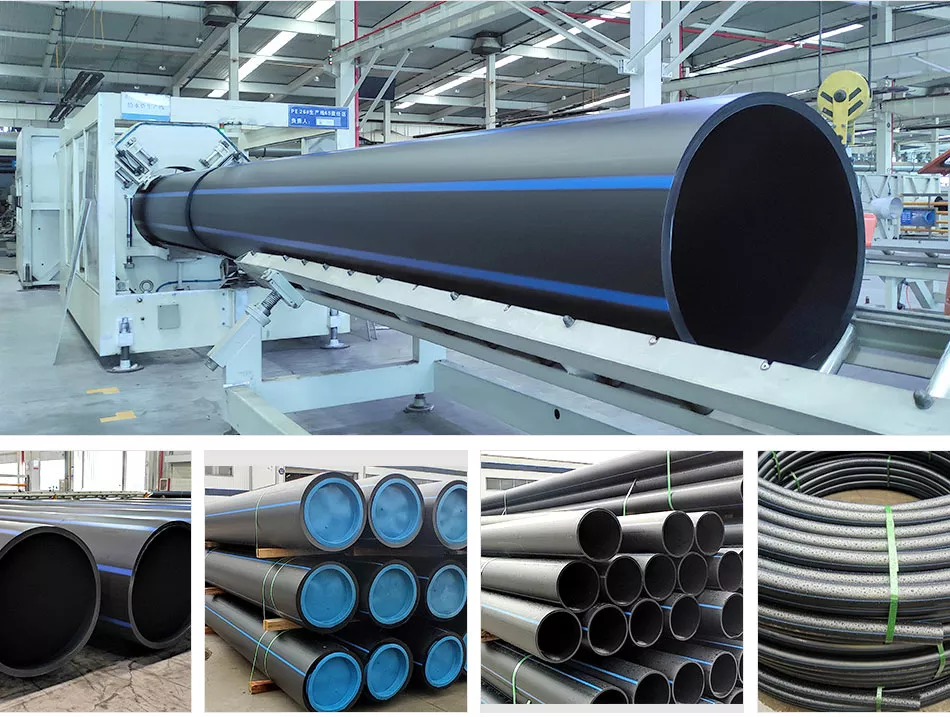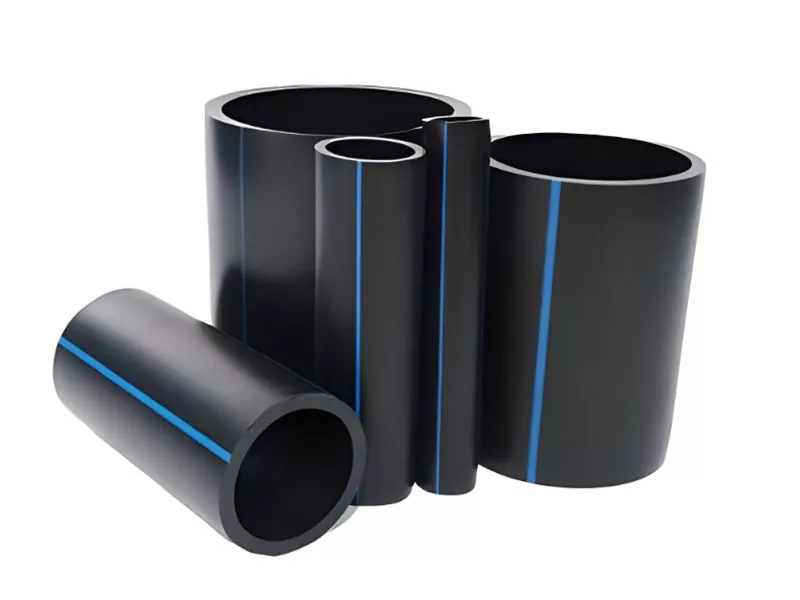Understanding the Trick Perks of HDPE Pipe for Water and Wastewater Monitoring
Using HDPE pipe in water and wastewater monitoring offers various advantages that warrant consideration. Its outstanding toughness and lengthy life expectancy make it a preferred selection for numerous projects. Furthermore, the material's resistance to deterioration and chemical damages enhances its integrity in different environments. The benefits expand past simply durability and resistance. American Plastics HDPE Pipe for Oilfield. Exploring its cost-effectiveness and ecological effect discloses even a lot more engaging reasons for its extensive adoption in modern-day infrastructure
Phenomenal Resilience and Long Life

HDPE pipeline stands out for its exceptional sturdiness and long life, making it a recommended selection in water monitoring systems. Created from high-density polyethylene, these pipelines can hold up against considerable pressure and anxiety, making certain reliable performance with time. Their durable nature permits them to endure extreme ecological problems, consisting of temperature level changes and soil activities, which can cause various other products to stop working.
The life expectancy of HDPE pipes typically exceeds 50 years, supplying an economical service for towns and industries alike. In addition, the product's lightweight properties simplify installment, minimizing labor costs and durations. This longevity lessens the requirement for constant repair services or replacements, further boosting its economic allure.
In water administration applications, the reliability of HDPE pipes indicates fewer disturbances and improved solution continuity, making them integral to sustainable framework development. The mix of sturdiness and longevity solidifies HDPE's duty as a foundation in effective water monitoring services.

Resistance to Rust and Chemical Damages
While many materials surrender to corrosion and chemical damage gradually, HDPE pipelines display exceptional resistance, making them ideal for different water administration applications. This strength comes from the molecular framework of high-density polyethylene, which is inherently non-reactive and does not corrode like steels or degrade from exposure to severe chemicals. Therefore, HDPE is very effective in atmospheres with hostile compounds, such as wastewater systems that might have acids, bases, and natural solvents.
In addition, HDPE pipelines can withstand ecological factors such as soil level of acidity and saline problems, further enhancing their viability for varied applications (hdpe pipe suppliers Midland TX). Their capability to preserve structural integrity with time lowers the danger of leaks and failures, which is vital in making certain the safety and security and dependability of water distribution and wastewater management systems. Subsequently, the resistance to deterioration and chemical damage significantly adds to the general effectiveness and long life of HDPE piping options
Cost-Effectiveness and Economic Advantages
When thinking about the financial effects of water management systems, the cost-effectiveness of HDPE pipes comes to be obvious. These pipes provide reduced installation and maintenance prices contrasted to conventional products like metal or concrete. Their light-weight nature simplifies transportation and installment, leading to reduced labor costs. In addition, HDPE pipelines exhibit a long life expectancy, frequently going beyond half a century, which translates to less substitutes and lasting financial savings.
The resistance of HDPE to deterioration and chemical damages minimizes the requirement for pricey repair services and substitutes. The pipes read more likewise sustain reliable water circulation, decreasing energy prices connected with pumping systems. By minimizing leakages and water loss, HDPE pipelines add to significant economic benefits for communities and industries alike. In general, the preliminary financial investment in HDPE piping can generate significant financial returns over the lifespan of the water management system, making it a prudent option for lasting framework growth.
Ecological Sustainability and Lowered Influence

Versatility and Adaptability in Installation
Due to their special buildings, HDPE pipes supply exceptional adaptability and adaptability in setup, making them ideal for a large range of applications. Their lightweight nature enables simpler handling and transport, decreasing labor prices and installment time. HDPE pipes can be bent and shaped to fit different terrains and job needs, which is particularly helpful in challenging settings.
Furthermore, their resistance to deterioration and chemical damage enables installment in varied settings without the requirement for specialized protective finishes. The ability to fuse joints creates a constant, leak-free system, boosting the total integrity and dependability of the installment. HDPE's adaptability additionally accommodates ground movement, minimizing the danger of damages in locations vulnerable to shifting soil. In general, these qualities make HDPE pipelines not just functional yet also a preferred choice for water and wastewater management systems.
Frequently Asked Questions
How Does HDPE Pipe Compare to PVC in Water Management Applications?
HDPE pipe provides remarkable versatility, resistance to rust, and durability compared to PVC. Its lighter weight promotes easier installation, while its lengthy life-span lowers substitute expenses, making HDPE a favored choice in water management applications.
What Is the Life Expectancy of HDPE Water Lines Under Normal Conditions?
Under common conditions, HDPE pipelines can have a life-span ranging from 50 to 100 years. Their sturdiness and resistance to corrosion add to their lasting efficiency in different applications, making them a trusted choice for framework.
Are HDPE Water Lines Recyclable After Their Life Span?
Yes, HDPE pipelines are recyclable after their life span. Midland TX HDPE Pipe Fittings in Stock. They can be processed and repurposed right into new items, substantially decreasing ecological effect and advertising sustainability within the market, making them an environment-friendly choice for piping remedies
What Is the Setup Refine for HDPE Water Lines?
The installment process for HDPE pipelines involves site prep work, trenching, pipeline fusion or mechanical signing up with, backfilling, and stress testing. Appropriate techniques ensure a sturdy and effective system for transporting water and wastewater efficiently.
Can HDPE Pipes Be Utilized for Both Potable and Non-Potable Water Systems?
Yes, HDPE pipelines can be used for both drinkable and non-potable water systems. Their adaptability, durability, and resistance to deterioration make them appropriate for various applications, guaranteeing risk-free and reliable transport of water in different contexts.